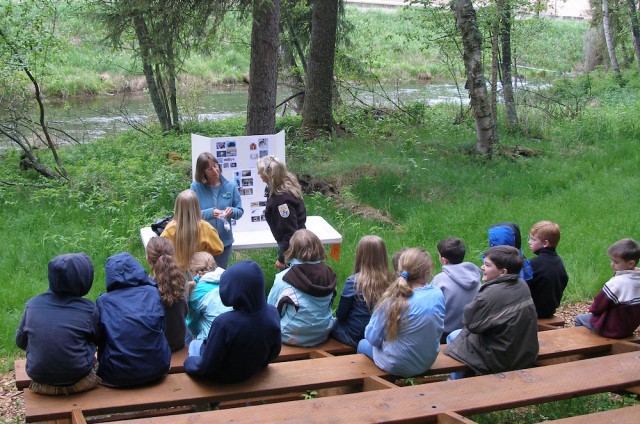Simulating Wealth and Poverty in Junior High
by Eve Asher

In sixth grade, my math teacher assigned us a project: We were supposed to pick a job, find out how much it paid per hour, and then calculate how many hours of work it would take to buy a few fantasy items. The teacher told us to ignore little details like taxes and living expenses. At the end, we made posters with pictures of the things we fake-bought.
Some of the boys in the class acted like it was a competition to see who could get the highest-paying fake job. One boy bragged that he was going to be a CEO and earn $100 an hour. I looked down on those kids for thinking money was all that mattered. I’d been taught all my life that I could do anything I wanted when I grew up. The corollary to that was that whatever you end up doing should be something you want to do. I was taking a nobler path, choosing my fake job for love instead of (fake) money. I’d been working for my school’s newspaper and reading my dad’s Russell Baker books, so I chose Newspaper Editor.
At this point, all I knew about salaries came from the board game Life. Still, when I looked up what the average newspaper editor made, I could tell it wasn’t enough. I rounded it up a bit. I could be a high-end editor, I thought. Then I picked my items: a then-impressive flip phone, a convertible, and a dream house on a Caribbean island I’d never heard of. I didn’t particularly want any of these things. They just seemed like wealth to me — like what a cartoon character would buy if she won the lottery. Being fake-rich mattered to me too, apparently.
I went to public school in a wealthy town. Most of my classmates were well off, though not all. I imagine the project was supposed to teach us the value of money and hard work, but all it did was teach us the value of conspicuous consumption — that the point of having money wasn’t just to buy stuff but to buy better stuff than your friends.
In eighth grade, my school took us to Nature’s Classroom. You might know it from this story about a girl who was traumatized by an underground railroad reenactment. My class did that same reenactment.
Nature’s Classroom was an odd mix of hiking, ropes courses, campfire singalongs, and liberal propaganda. I was a liberal kid in a liberal town, so I enjoyed it. During one meal, the staff taught us about world hunger by dividing us into groups representing different regions and feeding us according to the availability of food in that region. I was in the biggest group, representing Asia. We got a plate of rice and a half pitcher of water for the whole table. One kid represented rich America and got a multi- course meal. Another represented poor America and got Wonderbread, ketchup, and Spam.
Then there was the poverty simulation. We were given a certain amount of fake money and a list of tasks to accomplish. We had to find an apartment, get a job, and apply for food stamps. You couldn’t get food stamps without an address; you couldn’t get an apartment without a job; and you couldn’t get a job without an apartment.
For years, I thought this exercise was great. It demonstrated how the system fails poor people, how difficult it is to navigate a complex bureaucracy, and how hard it is to lift yourself out of poverty. What a progressive thing to teach school kids, that poverty is perpetuated by institutions and isn’t the individual’s “fault.” But when the story came out about the underground railroad reenactment, I thought about how the exercise assumed none of the kids had first-hand experience with racism. Similarly, the poverty exercise assumed none of us had personal experience with poverty. We needed the simulations to show us how hard it was. But what about the kids who didn’t need to be shown? Had the program thought about what this exercise would be like for them?
We were supposed to learn to care about the poor, but we didn’t learn that poor people were, you know, people. All we learned was how to look like we cared. First conspicuous consumption, then conspicuous conscience. I was a rich kid in a rich town. These were the things I needed to know.
Eve Asher’s writing has appeared on The Awl and The Toast. She tweets and podcasts about teen-oriented television.
Photo: USFWS Mountain-Prairie
Support The Billfold
The Billfold continues to exist thanks to support from our readers. Help us continue to do our work by making a monthly pledge on Patreon or a one-time-only contribution through PayPal.
Comments